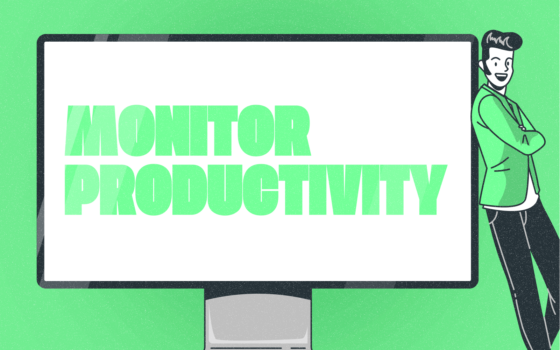Knockout Question
Understanding Knockout Questions in HR
In the realm of human resources, knockout questions have become an indispensable tool for streamlining the hiring process. These carefully crafted queries serve as a preliminary filter, helping recruiters and hiring managers quickly identify candidates who meet the basic qualifications for a position. By leveraging knockout questions, HR professionals can significantly reduce the time and resources spent on reviewing applications that don't align with the job requirements.
The Purpose and Function of Knockout Questions
Knockout questions, also known as screening questions or disqualifying questions, are designed to assess whether a candidate possesses the minimum qualifications necessary for a particular role. These questions typically have a binary nature – a "yes" or "no" response – and are strategically placed at the beginning of the application process. The primary goal is to swiftly eliminate applicants who don't meet the essential criteria, allowing HR teams to focus their attention on more promising candidates.
For instance, a knockout question for a position requiring a specific certification might be: "Do you currently hold a valid XYZ certification?" A negative response would automatically disqualify the applicant, saving both the candidate and the employer valuable time and effort.
Benefits of Implementing Knockout Questions
The integration of knockout questions into the recruitment process offers several advantages for HR departments and organizations as a whole:
- Time Efficiency: By quickly filtering out unqualified candidates, HR professionals can dedicate more time to evaluating those who meet the basic requirements.
- Cost Reduction: Streamlining the initial screening process reduces the overall cost per hire by minimizing the resources spent on reviewing unsuitable applications.
- Improved Candidate Experience: Applicants who don't meet the essential criteria are informed early in the process, preventing frustration and wasted effort.
- Enhanced Quality of Hire: By ensuring that all candidates who progress to later stages meet the minimum qualifications, the overall quality of the candidate pool is improved.
- Compliance: Knockout questions can help ensure that all applicants meet legal or regulatory requirements for certain positions.
Crafting Effective Knockout Questions
The art of creating impactful knockout questions lies in striking a balance between being concise and comprehensive. Here are some key considerations when formulating these crucial screening tools:
Clarity and Specificity
Knockout questions should be unambiguous and directly related to the job requirements. Avoid using jargon or complex language that might confuse applicants. For example, instead of asking "Do you have experience with cutting-edge technology?", a more specific question would be "Have you worked with cloud-based CRM systems in the past two years?"
Relevance to the Position
Ensure that each knockout question addresses a critical aspect of the job. Focus on skills, qualifications, or experiences that are absolutely essential for success in the role. For a software developer position, a relevant knockout question might be: "Have you worked on projects using Java programming language in a professional capacity?"
Legal Considerations
When crafting knockout questions, it's crucial to stay within legal boundaries and avoid discriminatory practices. Questions should not touch upon protected characteristics such as age, gender, race, religion, or disability status. Instead, focus on job-related qualifications and requirements.
Quantifiable Criteria
Whenever possible, use quantifiable criteria in knockout questions to make the screening process more objective. For instance, "Do you have at least 3 years of experience managing teams of 10 or more employees?" provides a clear benchmark for evaluation.
Implementing Knockout Questions in the Recruitment Process
The effective implementation of knockout questions requires careful planning and integration into the broader recruitment strategy. Here's how organizations can maximize the impact of these screening tools:
Placement in the Application Process
Knockout questions are typically placed at the beginning of the application process, often as part of the initial online application form. This strategic positioning ensures that candidates are screened before significant time is invested in reviewing their full applications or conducting interviews.
Integration with Applicant Tracking Systems (ATS)
Many modern Applicant Tracking Systems allow for the seamless integration of knockout questions. These systems can automatically filter out candidates based on their responses, streamlining the screening process and providing valuable data for HR analytics.
Balancing Automation and Human Touch
While knockout questions are an excellent tool for initial screening, it's important to strike a balance between automation and human judgment. Some candidates may have unique circumstances or equivalent qualifications that warrant further consideration. Implementing a process for manual review of borderline cases can help ensure that potentially valuable candidates aren't overlooked.
Regular Review and Refinement
The effectiveness of knockout questions should be regularly assessed and refined. HR teams should analyze data on candidate flow, quality of hires, and feedback from hiring managers to determine if the current set of questions is achieving the desired outcomes. As job requirements evolve, so too should the knockout questions associated with each position.
Potential Pitfalls and How to Avoid Them
While knockout questions can be highly effective, there are potential drawbacks that HR professionals should be aware of:
Over-Reliance on Rigid Criteria
Excessively strict knockout questions may eliminate candidates who have valuable skills or experiences that compensate for lacking a specific qualification. To mitigate this risk, consider including an option for candidates to provide additional context or explanations for their responses.
Discouraging Diverse Applicants
Poorly worded knockout questions might inadvertently discourage diverse applicants or those from non-traditional backgrounds. Regularly review your questions to ensure they are inclusive and don't create unnecessary barriers for underrepresented groups.
Candidate Frustration
Some applicants may feel frustrated by being disqualified early in the process without the opportunity to showcase their full potential. To address this, provide clear explanations of why certain qualifications are essential and offer alternative suggestions for candidates who don't meet the criteria.
Missing Out on Potential Talent
Overly rigid knockout questions might cause organizations to miss out on candidates with high potential who could quickly acquire the necessary skills. Consider including questions that assess a candidate's ability to learn and adapt, rather than solely focusing on current qualifications.
Best Practices for Using Knockout Questions
To maximize the benefits of knockout questions while minimizing potential drawbacks, consider the following best practices:
Tailor Questions to Each Position
Avoid using a one-size-fits-all approach. Customize knockout questions for each role based on its specific requirements and the unique needs of your organization.
Use a Mix of Question Types
While yes/no questions are common for knockout criteria, consider incorporating multiple-choice or short-answer questions to gather more nuanced information about candidates' qualifications.
Provide Clear Instructions
Ensure that candidates understand the purpose of knockout questions and how their responses will be used in the selection process. Transparency can help reduce frustration and improve the overall candidate experience.
Offer Alternatives
For candidates who don't meet the knockout criteria, consider providing information about other suitable positions within the organization or resources for skill development.
Continuously Evaluate and Adjust
Regularly analyze the effectiveness of your knockout questions by tracking metrics such as application completion rates, quality of hire, and time-to-fill. Use this data to refine your approach and ensure alignment with organizational goals.
The Future of Knockout Questions in HR
As technology continues to evolve, so too will the application of knockout questions in the recruitment process. Here are some trends and developments to watch:
AI-Powered Screening
Artificial intelligence and machine learning algorithms are increasingly being used to analyze responses to knockout questions, identifying patterns and insights that may not be immediately apparent to human recruiters.
Dynamic Question Sets
Advanced applicant tracking systems may soon offer the ability to dynamically adjust knockout questions based on a candidate's previous responses, creating a more personalized and efficient screening process.
Integration with Skills Assessments
Knockout questions may be combined with brief skills assessments or simulations, providing a more comprehensive initial evaluation of candidates' capabilities.
Enhanced Candidate Feedback
Future systems may offer more detailed feedback to candidates who don't meet knockout criteria, including personalized recommendations for skill development or alternative career paths.
Conclusion
Knockout questions have become an integral part of modern HR practices, offering a powerful tool for streamlining the recruitment process and improving the quality of hires. When crafted thoughtfully and implemented strategically, these screening questions can significantly enhance the efficiency and effectiveness of talent acquisition efforts.
However, it's crucial for HR professionals to approach knockout questions with a balanced perspective, recognizing both their benefits and potential limitations. By continually refining their approach, staying attuned to legal considerations, and prioritizing candidate experience, organizations can leverage knockout questions to build stronger, more diverse teams while optimizing their recruitment resources.
As the landscape of work continues to evolve, so too will the role of knockout questions in HR. By staying informed about emerging trends and best practices, HR professionals can ensure that this valuable tool remains an asset in their quest to attract and retain top talent in an increasingly competitive job market.


